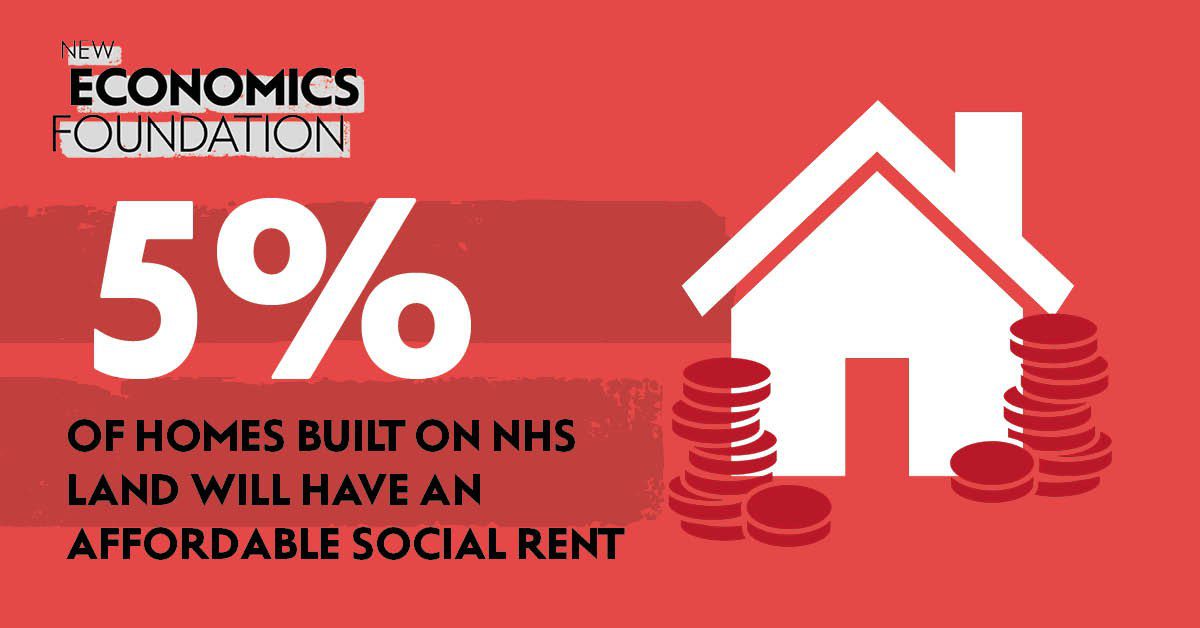Public land could be key to solving the housing crisis
By selling off public land to the highest bidder, the Government is missing an opportunity to build the homes we need
06 June 2019
We’ve been arguing for a while now that the government’s public land sale policy is short-sighted.
In theory, the government is selling public land for two reasons; to release enough land for 160,000 homes by 2020, and to raise £5 billion in capital receipts. But in 2017, we demonstrated that, at the rate they were moving then, the government’s new homes target on sold-off public land would not be met until 2032, 12 years later than promised. Last month, the National Audit Office reported that the government are still not on target, and are only expecting to have released enough land for 41% of the target by 2020, a shortfall of land for 94,789 homes.
And while the government currently expect to meet their cash receipt target by 2020, having generated £2.48 billion from proceeds between 2015 and 2018, there is currently insufficient data to say with certainty where the sale proceeds have been spent.
Public land, if it must be sold, represents an opportunity to produce the kinds of homes people need
Data has been a real problem for this policy. The government is ostensibly selling public land to lessen the housing crisis. But they aren’t reporting on the number of affordable homes built on the surplus land. We sent the government some Freedom of Information requests last year, which they denied. We now know this is because they aren’t even collecting data on the provision of affordable homes on public land.
So we decided to do some digging ourselves.
Taking just one department, we looked at NHS land sold in 2017 – 18 and analysed the planning documents for the 23 sites that have the capacity for over 80 homes. We found:
- Only 5% of the homes built on sold-off NHS land will be for genuinely affordable social rent. 30% of the sites have plans for no affordable housing at all, and 61% have plans that include no socially rented housing — widely understood as the only housing that is genuinely affordable to people on low incomes.
- Of the planned homes to be built for sale on NHS land, two thirds will be unaffordable to a nurse on an average salary. And where they could afford the mortgage repayments, a nurse would have to save for an average of 35 years to afford the deposit.
- The average expected sale price for these new homes, based on area estimates, is £306,434. This is 9.6 times the average annual salary of a nurse.

This is simply not good enough. As well as national housing crisis, the NHS also has its own staffing crisis. In 2016 a survey by the Royal College of Nursing found that 40% of nurses in London plan to leave the capital within 5 years, because of the cost of housing. The average RCN member spent 50% of their take home pay on housing and transport. Despite this, when we looked at the two large NHS sites in London with planning permission for development in 2017/18, we found that none of the homes being built for sale would be at a price which would be affordable to nurses.
The UK is facing a worsening housing crisis – finding a decent, affordable place to live is becoming harder and harder for people and families across the country. There are 1.2 million families on the waiting list for social housing. A key part of this crisis is the overinflated price of land dictating what gets built on it. Public land, if it must be sold, represents an opportunity to produce the kinds of homes people need. But the government’s approach to the public land sale is a total shambles — so much so that we know more than them about what’s being built on the land they have sold.
Over the coming months we will be bringing together central government and local authority land sales to get a truly national picture of the sell-off. Only then can we build a picture of an alternative to the fire sale of public land, that results in the supply of genuinely affordable homes.
Image: Henry Hemming (CC BY-NC-ND 2.0)
Topics Housing & land






